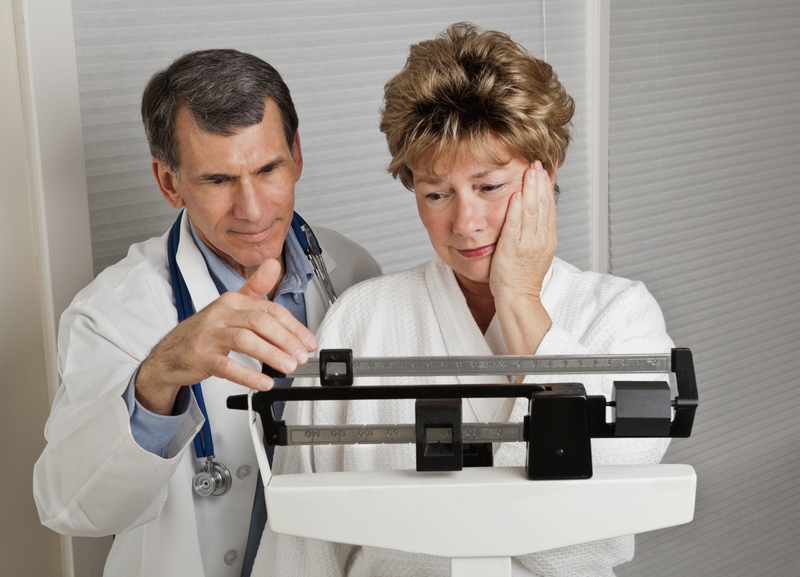Menopause is a natural and inevitable phase in a woman’s life, marking the end of her reproductive years. This transitional period, typically occurring in the late 40s or early 50s, brings about a multitude of changes, both physical and emotional. One significant aspect that women often grapple with during menopause is weight management and overall health. Adopting a holistic approach becomes crucial in addressing women’s diverse challenges during this transformative stage.

Understanding Menopause and Its Impact
Menopause is characterized by the cessation of menstruation, resulting from a decline in reproductive hormones such as estrogen and progesterone. This hormonal shift not only triggers common symptoms like hot flashes, mood swings, and sleep disturbances but can also affect metabolism and body composition, leading to weight gain, particularly around the abdomen.
Hormonal Changes and Weight Management

As estrogen levels decrease, the body tends to redistribute fat, favoring the abdominal area. This shift in fat distribution is not only a cosmetic concern but also poses health risks, as abdominal fat is linked to an increased risk of cardiovascular disease and type 2 diabetes. Recognizing these changes is the first step in developing a holistic approach to weight management during menopause.
Holistic Approach to Women’s Health

Balanced Nutrition
A well-balanced diet is foundational to managing weight during menopause. Emphasize whole foods, including fruits, vegetables, lean proteins, and whole grains. Incorporating foods rich in calcium and vitamin D becomes crucial for maintaining bone health, which is often compromised during menopause.
Regular Exercise
Engaging in regular physical activity is essential for managing weight and promoting overall well-being. Weight-bearing exercises like strength training help maintain bone density, while cardiovascular exercises contribute to heart health and calorie burning. Additionally, activities like yoga can address stress and promote mental health.
Stress Management
Menopause often brings about increased stress and anxiety. Stress can contribute to weight gain, especially around the abdominal region. Implement stress-management techniques such as meditation, deep breathing exercises, or mindfulness to mitigate stress’s impact on mental and physical health.
Adequate Sleep
Sleep disturbances are common during menopause and can disrupt hormonal balance, leading to weight gain. Prioritize good sleep hygiene by establishing a consistent sleep schedule and creating a relaxing bedtime routine. Addressing sleep issues can positively impact weight management and overall health.
Hormone Replacement Therapy (HRT)

For some women, hormone replacement therapy may be a viable option to alleviate menopausal symptoms and potentially manage weight. However, consulting with a healthcare professional to assess the risks and benefits based on individual health profiles is crucial.
Mindful Eating
Practicing mindful eating involves being aware of food choices, eating slowly, and paying attention to hunger and fullness cues. This approach can prevent overeating and promote a healthier relationship with food during menopause.
The Vital Role of Community Support
Menopause is not only a physiological transition but also a significant emotional and psychological journey for women. The importance of community support during this transformative period cannot be overstated. Building a network of understanding friends and family or participating in group activities provides a crucial support system that can positively impact a woman’s mental and emotional well-being.

Emotional Understanding
Menopause often comes with a range of emotions, from frustration and irritability to anxiety and sadness. Sharing these feelings with a supportive community can provide a safe space for women to express themselves without judgment. Knowing that others are experiencing similar emotions helps normalize the ups and downs of this phase, reducing feelings of isolation.
Information Sharing
In a supportive community, women can exchange valuable information and personal experiences related to menopause. This can include tips for managing symptoms, insights into effective coping strategies, and recommendations for healthcare professionals specializing in menopausal care. The exchange of knowledge empowers women with a wealth of information to make informed decisions about their health.
Encouragement for Lifestyle Changes
Adopting a holistic approach to menopausal health often involves making lifestyle changes, such as adjusting diet, incorporating exercise, and practicing stress management techniques. Having a community that encourages and motivates these changes can be a powerful driving force. Shared goals and achievements create a sense of camaraderie, inspiring women to stay committed to their health and well-being.
Menopause marks a significant life transition for women, bringing about changes in hormonal balance, metabolism, and overall health. Adopting a holistic approach to women’s health and weight management during this time is essential for addressing the diverse challenges that arise. Through a combination of balanced nutrition, regular exercise, stress management, and a supportive community, women can navigate menopause with resilience and embrace this new chapter in their lives. Consultation with healthcare professionals ensures personalized guidance, contributing to a healthier and more empowered menopausal experience.

